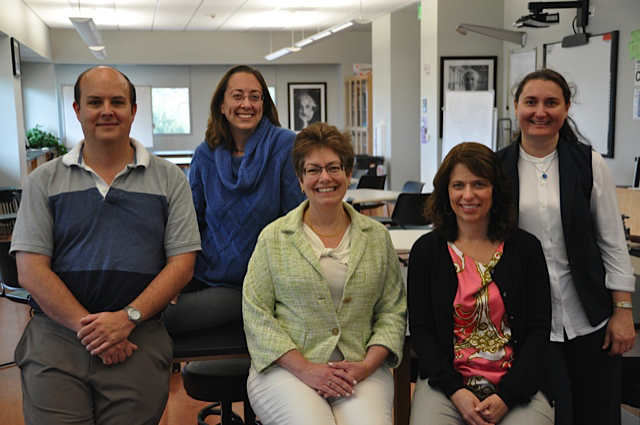
UCSB Education, Engineering, and Physics Faculty Receive NSF Grant to Fund Teacher Credential Candidates in the Physical Sciences
With class enrollments increasing from kindergarten through 12th grade, California is estimated to need more than 30,000 new math and science teachers over the next 10 years. A $1.19 million grant from the National Science Foundation (NSF) is enabling researchers at UC Santa Barbara to establish an innovative program to help the state meet this impending need.
The grant was awarded through the NSF's Noyce Scholarship Track, which provides funds to institutions of higher education to support scholarships, stipends, and academic programs for undergraduates in science, technology, engineering, and mathematics (STEM) fields to earn teaching credentials and commit to working in high-need primary and K-12 school districts.
The principal investigators include Julie Bianchini, a professor of education; Sandra Seale, project specialist and education and outreach coordinator for the Network for Earthquake Engineering Simulation program; Deborah Fygenson, associate professor of physics; Susannah Scott, professor of chemical engineering and of chemistry and biochemistry; and Michael Gordon, assistant professor of chemical engineering.
At UCSB, the grant will establish CalTeach: Physical Sciences and Engineering (CTPSE). The CTPSE team will include additional faculty from the College of Engineering and from the Departments of Chemistry and Biochemistry, Physics, and Education; high school teachers and principals from two STEM academies in the high-need Santa Barbara Unified School District; and program directors and community leaders from UCSB's Mathematics, Engineering, and Science Achievement (MESA) program, the Dos Pueblos Engineering Academy, and the Santa Barbara County PreK-20 STEM Council.
CTPSE will build on several existing, highly successful efforts, including the two STEM academies; UCSB's CalTeach initiative, which is part of the University of California's systemwide effort to improve science and mathematics teaching at the secondary school level; and CalTeach at Santa Barbara, UCSB's current Noyce Phase I program, which supports teacher candidates in mathematics and the life sciences.
"This new award is different in that it focuses only on physical science teachers," said Bianchini. "It's also different in that we're starting at the undergraduate level. We'll recruit undergrads in chemistry, physics, and engineering, and ask them to consider teaching as a career."
The award will cover a five-year period. Each year, Bianchini and her co-principal investigators will bring in a cohort of undergraduates at the sophomore level, and continue working with them throughout their junior and senior years, with the goal of leading them to the teacher education program at UCSB's Gevirtz Graduate School of Education. "We're going to invite about 14 sophomores to work at Dos Pueblos and Santa Barbara High Schools," Bianchini explained. "Ultimately, we'll give six Noyce Scholarships to those who go on to the teacher education program."
One of the broader impacts of the project, according to Bianchini, is to increase by 140 percent the number of well-trained, highly motivated physics and chemistry teachers who complete their credential work at UCSB. In addition, as beginning teachers, CTPSE participants will gain the requisite skills and expertise to establish or develop innovative programs in their own high-need schools. A third impact of the project will be the wide dissemination of strategies found effective in preparing science teachers to integrate engineering and science, and to actively engage students in solving engineering problems and in investigating natural phenomena.
Ultimately, Bianchini said, CTPSE is expected to improve the teaching of chemistry and physics to underserved students in California, providing more Latinos/as, low-income students, and English learners with access to a high quality –– and equitable –– education in the physical sciences.
Related Links
Robert Noyce Teacher Scholarship Program
Gevirtz Graduate School of Education
College of Engineering



